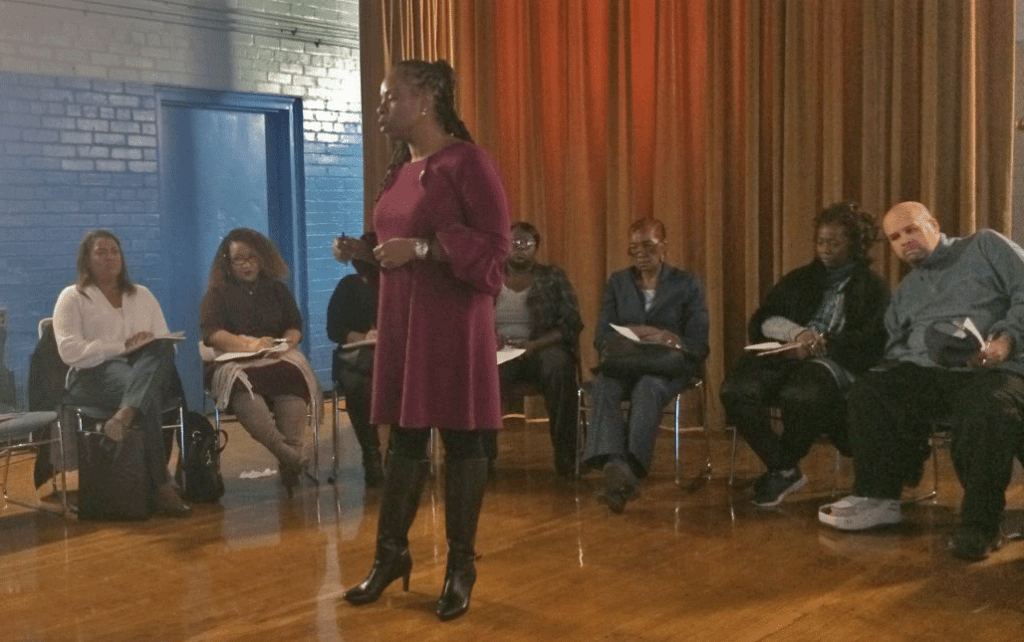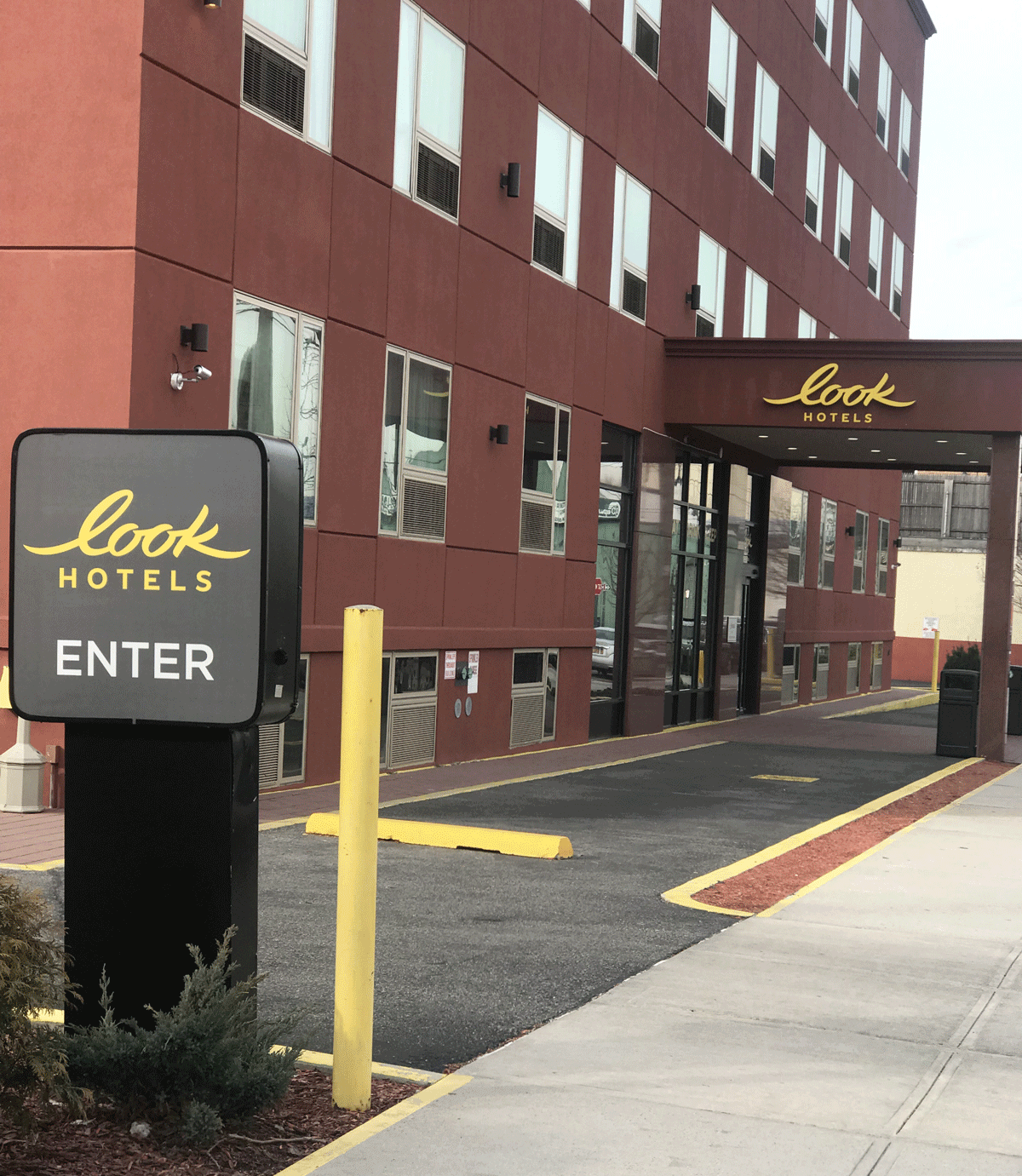On Friday, December 14, the New York City Department of Homeless Services (DHS) converted the LOOK Hotel at 17 Seabring Street into a temporary homeless shelter that will offer 152 beds for “single adult males who are employed or employable.” DHS has contracted Core Services Group, a Brooklyn-based nonprofit, to operate the facility.
No estimate has been provided for how long the LOOK will operate as a shelter, although DHS has plans to phase out the practice of renting out commercial hotels for the homeless by 2023. Similarly, the use of “cluster sites” – rundown private apartments temporarily occupied by DHS – will be discontinued by 2021, as the city transitions to a system of permanent shelters, of which Mayor de Blasio pledged in 2017 to build 90. While legal battles delay their construction, however, DHS must abide by 1978’s “right to shelter” law, which requires New York City to provide refuge for anyone who “by reason of physical, mental or social dysfunction is in need of temporary housing.”
DHS alerted local elected officials and Community Board 6 (CB6) only 24 hours before the new shelter opened in Red Hook. By the following Thursday, 30 homeless men had moved into the LOOK Hotel.
That morning, PS 676 hosted a small, hastily assembled meeting of community leaders – including Red Hook Houses West Tenants Association President Lillie Marshall, CB6 District Manager Mike Racioppo, and representatives from the offices of congresswoman Nydia Velasquez and state assemblyman Félix Ortiz – who listened as DHS Administrator Joslyn Carter and Core’s Vice President of Community Affairs Gordon Jackson sought to allay concerns about the LOOK Hotel’s new occupants. Many of the attendees had heard about the shelter only a day or two earlier. Councilman Carlos Menchaca organized the event.
“People who are experiencing homelessness deserve some respect,” said Carter, who hoped to dispel fears that Red Hook’s newcomers would pose a danger to nearby residents. Jackson added that seven security guards, in addition to resident assistants, would man the premises, and he promised to reach out later that day to the NYPD’s 76th Precinct to make the officers aware of the new presence in the neighborhood.

During the Q&A portion of the meeting, safety worries and the specter of “sex offenders” – whom, according to the Department of Social Services’ Special Advisor for Government and Community Relations Lori Boozer, DHS’s intake center will not send to 17 Seabring – did come up. Neighborhood residents also wondered whether the shelter could be structured to accommodate the homeless families already living within Red Hook instead of serving outsiders. Carter replied that the rooms at homeless hotels, which don’t have kitchens, are better suited to singles than families, and that while preference may be given to Red Hook locals, DHS can’t withhold needed beds from others in the hope of finding familiar faces from the neighborhood to fill them.
The largest concern by far, however, related to the absence of advance notice or opportunity for public input before the shelter’s arrival. Natasha Campbell – executive director at Summit Academy, which sits four blocks from the LOOK Hotel – contended that the meeting’s rumbles of discontent didn’t necessarily arise from a prejudice against the homeless, and stressed the importance for her, as a school administrator, to be aware of all changes within the surrounding area: “There are almost 350 parents that send their kids to me,” she said. “We have the next generation in our hands.”

Menchaca noted the demand for greater transparency and mentioned that he was working on legislation that would require increased public outreach from DHS before the opening of shelters. He also praised attendees for their mostly accommodating attitude toward the shelter itself.

On Columbia Street, however, business owner Freddy Mandour lamented that, since DHS had overtaken the LOOK Hotel (which is no longer accepting other reservations), traffic at Camila’s Café had dwindled. Mandour’s customer base had consisted in large part of guests from the hotel around the corner.
“They killed my business. How can I stay here and make a living?” he said. “For all the stores around here, it’s the same thing.”










2 Comments
I checked with Front desk said its not a shelter and they are booked. That was yesterday.
they are not telling you the truth. i also stopped by and they said they were renovating and not accepting current reservations…